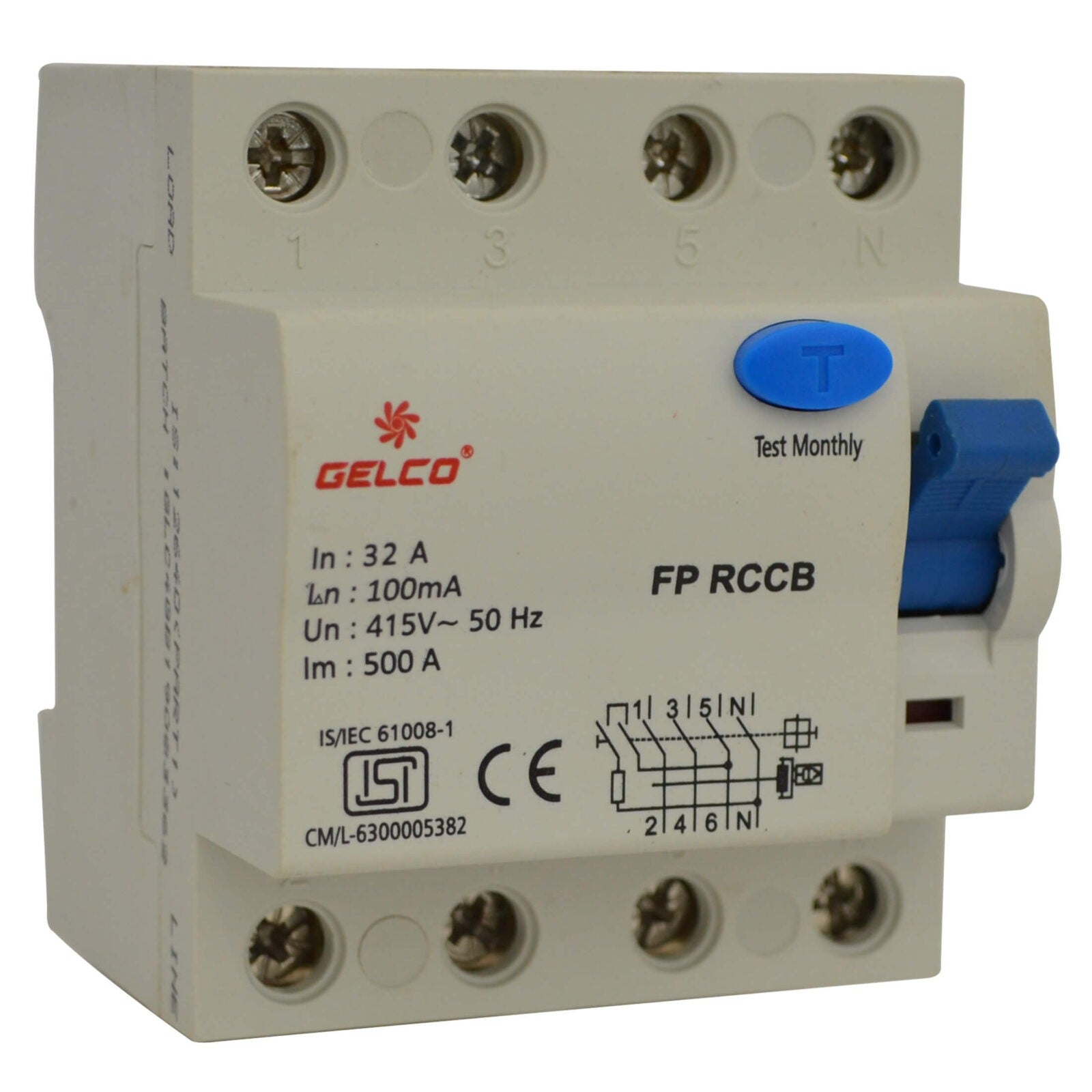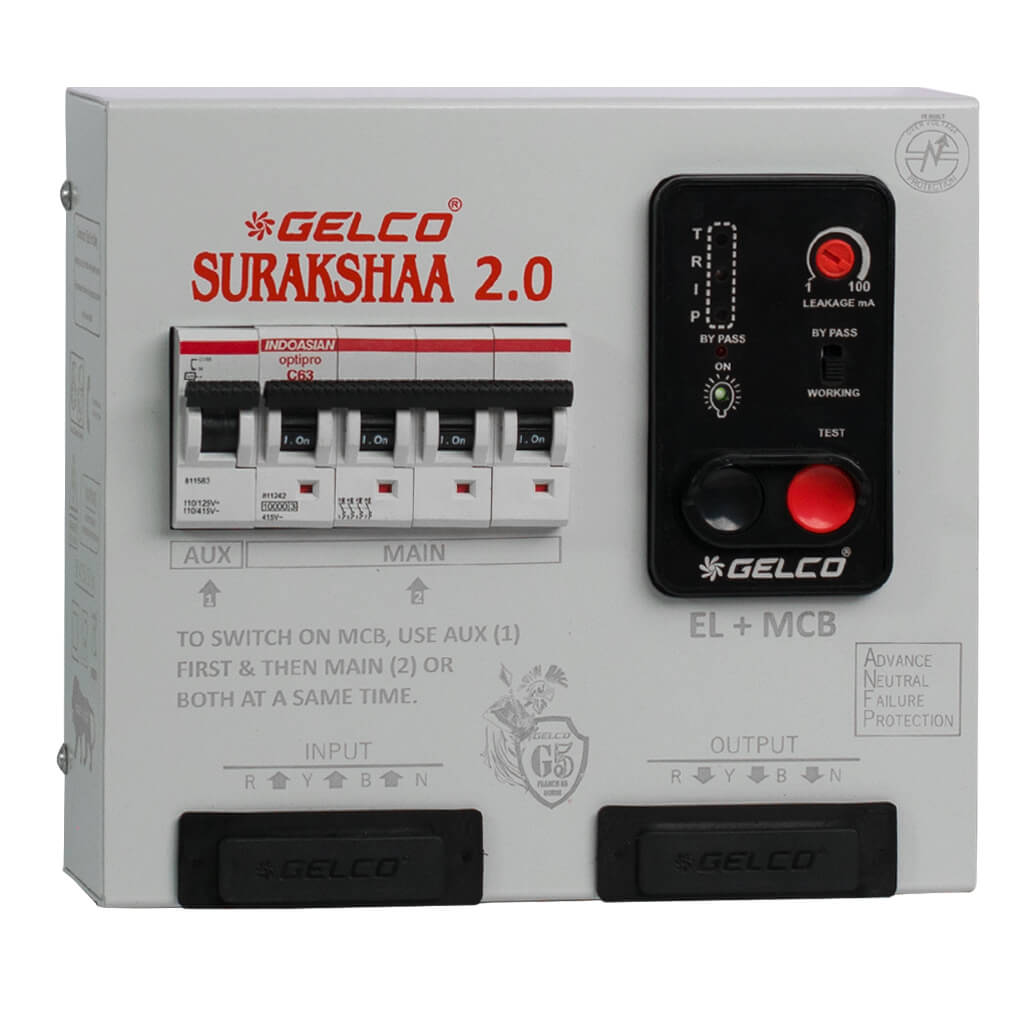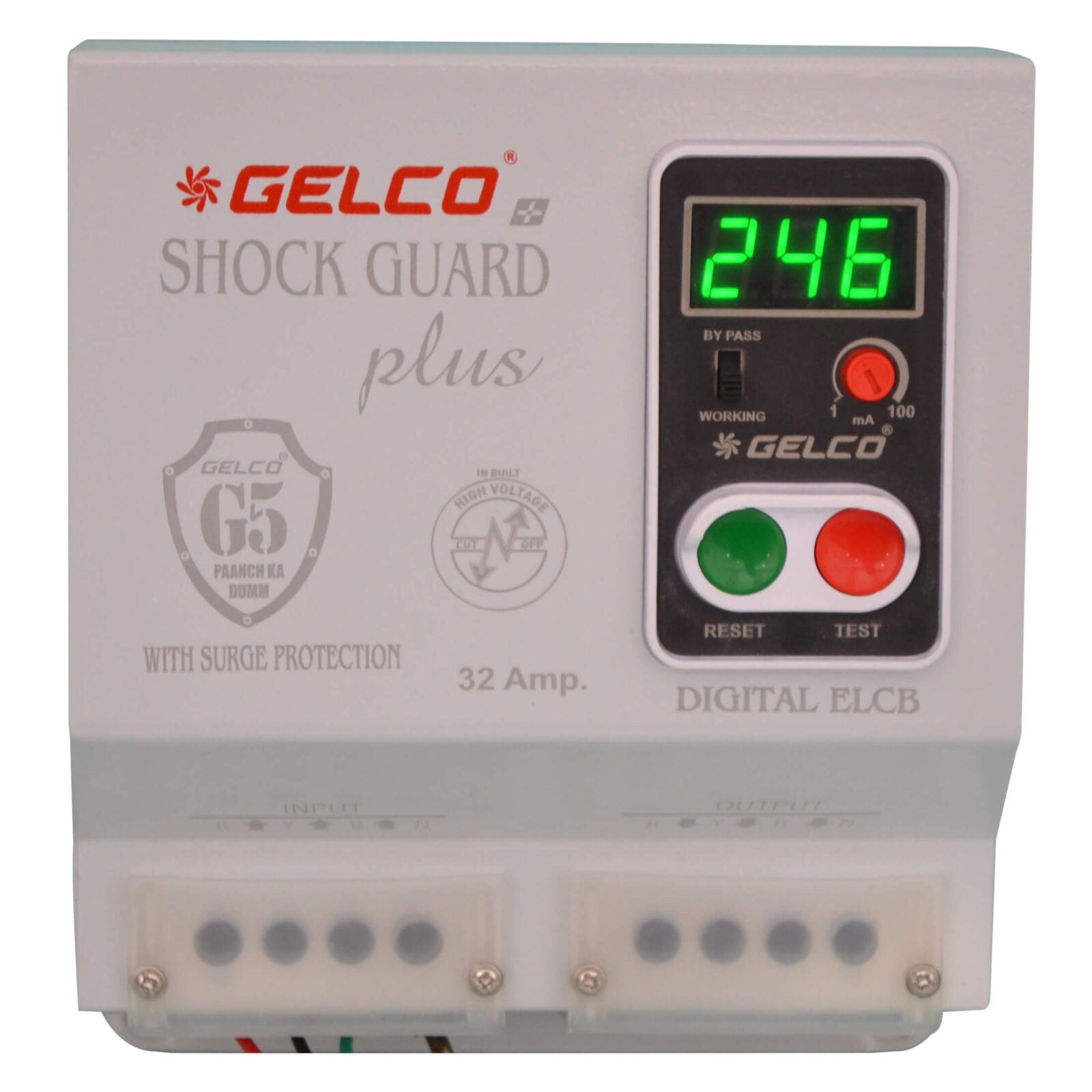Different Types of Circuit Breakers - ELCB, RCB, MCB or RCCB
Circuit breakers are capable of carrying, making or breaking rated current in a circuit. They act as safety devices that provide protection to the circuit as well as the equipment in situations of overloading, short circuit or under-voltage. In situations of crisis, they interrupt the flow of current to avoid any hazards. Once the electric flow is interrupted, the circuit breaker needs to be reset which can be done both manually or automatically, based on the kind available.
ELCB, RCB, MCB and RCCB are all circuit breakers, each designed to perform specific functions. It is their particular functionality that makes them different but all are used to protect against human hazards and appliance damage.
ELCB (Earth Leakage Circuit Breaker)
The devices basically helps in situations where there is earth leakage. Some electric systems have parts connected to the ground for safety purposes. The leakage in the flow of current due to broken wires or damaged insulation from a live conductor to the earth is called earth leakage. It may flow between their poor insulation or through a person’s body & cause electrical shock. ELCBs are installed to provide protection against leakage current to avoid electrical shock but do not offer protection against overloading or short circuit. They monitor the leakage current that flows out of the circuit through any unintended path using a current transformer and breaks the contact using an electromagnetic relay.
Based on the operation principle, there are majorly two types of ELCB, Voltage ELCB and Current ELCB which majorly differ in sensitivity & the level of protection. Other than that, ELCBs can also be classified based on the number of circuit breaker systems - 2 Pole ELCB, 3 Pole ELCB or 4 Pole ELCB.
MCB (Miniature Circuit Breakers)
It is an electromechanical device that easily senses the overcurrent caused by the short circuit and switches off the circuit automatically to avoid damage to the electric device. They are designed to trip during an overload or short circuit to protect against electrical faults and equipment failure. MCBs are widely used as isolating components that are triggered by an overcurrent. When there is excess current, the bimetallic strip within the MCB gets heat, bends, and trips. In the case of a short circuit, it uses the electromagnetic operation to trip the coil.
Based on their response to the likely strength of electrical surges in different settings, the MCBs are categorised into various types - A, B, C, D, K, and Z. The response rate of each varies based on the discharge. Ideally, if the discharge is high, the MCB will act quickly and trip, however, if the overcurrent is closer to the safety limits, the component will be slower to respond.
RCCB (Residual Current Circuit Breaker)
The current sensing device is an important safety measure when it comes to the protection of electrical circuits. It is designed to automatically sense any fault in the connected circuit. When the current exceeds the rated sensitivity, it automatically measures it and disconnects the circuit to avoid further damage. It works on a simple principle where it measures the incoming and the outgoing current, which are supposed to be equal. Any disparity in the flow leads to residual current which triggers the RCCB to trip. RCCB is effective for identifying and providing protection against earth fault as well as any leakage current and voltage fluctuation.
Based on the supply connection, RCCB is of two types - 2 Pole RCCB and 4 Pole RCCB for a single-phase and three-phase supply connection respectively, which can be used for both control and isolation of electrical circuits. RCCB provides real-time protection for circuits and is quite essential for industrial usage specifically.
It is quite essential to choose the right kind of circuit breaker as per your requirement. But along with that quality of the product must also be ensured. At Gelco Electronics we provide a wide range of state-of-the-art products fit for industrial, residential and commercial applications.

4-Pole RCCB
Buy Now
Suraksha 2.0 Miniature Circuit Breaker Three phase
Buy Now















